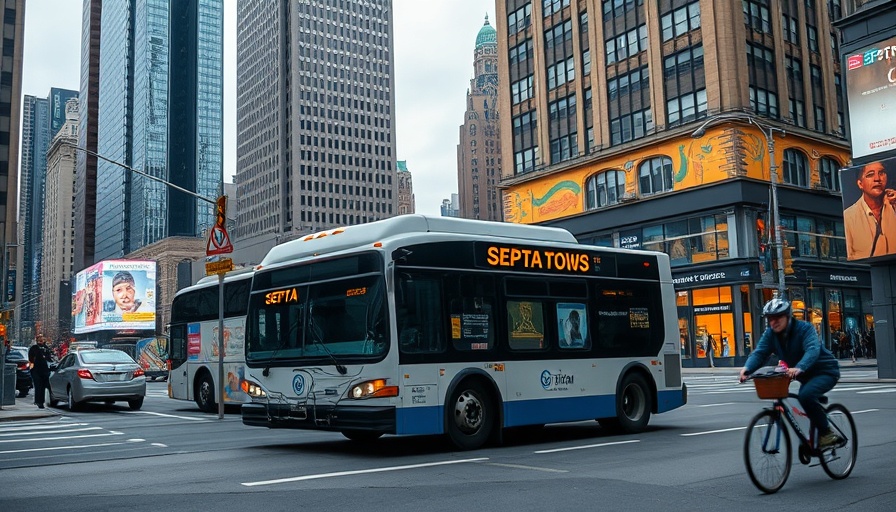
SEPTA’s Strategy for Service Restoration: A Closer Look
As the Southeastern Pennsylvania Transportation Authority (SEPTA) grapples with the challenges of funding its services, recent developments have painted a picture of resilience in the face of adversity. With capital funds redirected to operations, SEPTA has temporarily avoided service cuts for the next two years. This decision reflects a broader commitment to maintaining essential transit services amidst financial uncertainties, as highlighted by a recent statement on SEPTA's website. While these measures will ensure continued operation, there remains a pressing concern regarding the sustainability of this funding strategy, as no plans are in place to replenish the capital funds utilized for operational needs.
Rally for Clean Air: Public Health at Stake
On a different front, the community is mobilizing to combat environmental challenges. A rally organized by the Clean Air Council at LOVE Park served as an urgent call to action against the repeal of the Endangerment Finding by EPA Administrator Lee Zeldin. This legislative measure is crucial in protecting public health from pollution that exacerbates the climate crisis. Concerns are mounting that the repeal could lead to deteriorating air quality and increased health risks, echoing alarms raised by a recent Environmental Defense Fund analysis. This highlights the intersection of environmental policy and public health, reminding us that decisions made at the federal level directly impact local communities.
Addressing Clothing Insecurity: The Wardrobe Initiative
In the realm of social equity, The Wardrobe has made significant strides in addressing clothing insecurity by opening a new location in Norristown. This nonprofit organization focuses on helping individuals facing barriers to employment by providing free clothing. It’s a vital resource that not only assists with immediate clothing needs but also empowers individuals to pursue job opportunities with confidence. Such initiatives underline the importance of community support systems in fostering economic independence.
Urban Agriculture and Community Engagement
In a significant development for urban agriculture, the Philadelphia Orchard Project is seeking a new executive director. This organization plays an essential role in promoting sustainable practices by managing orchards throughout the city while offering hands-on education. With a leadership transition on the horizon, there is an opportunity for innovative approaches to urban agriculture, community engagement, and promotion of local ecological practices.
Connecting the Dots: The Bigger Picture
As we observe these developments, it becomes evident that public transit, environmental health, and community resources are deeply interconnected. Ensuring reliable transit is crucial for facilitating access to programs that promote employment and sustainability. Similarly, community mobilization, such as rallies for cleaner air and initiatives for clothing donation, illustrates the active role citizens are taking in addressing these pressing issues. The challenges we face call for a united approach, reminding us that local advocacy can drive significant change.
As residents of Philadelphia navigate through these evolving landscapes, it becomes crucial to stay informed and engaged. Understanding the implications of city policies on daily life encourages active participation in community advocacy. This is a pivotal moment for stakeholders, emphasizing the importance of collaboration to foster a cleaner, more equitable environment for all.
 Add Row
Add Row  Add
Add 




Write A Comment